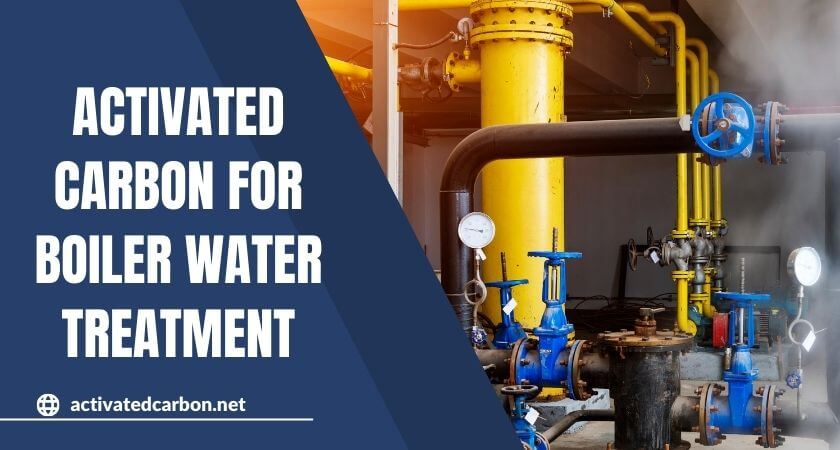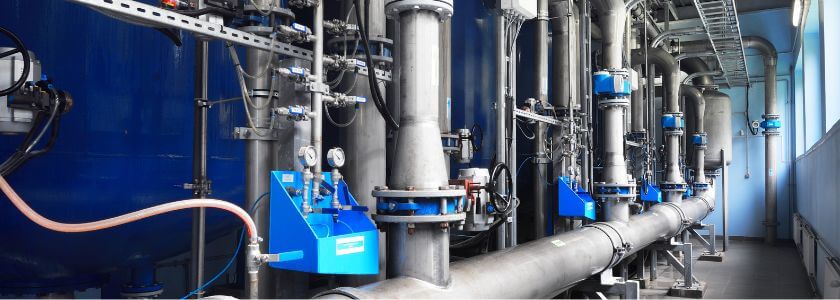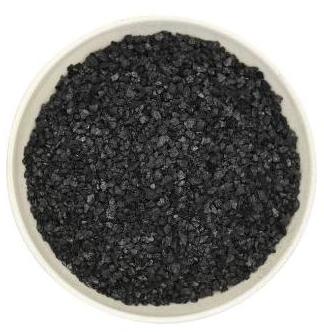
Boiler water treatment is crucial for the safety and economic operation of boilers, and it also has a significant impact on environmental pollution. Therefore, proper attention must be given to the treatment of boiler water.
This article will focus on the hazards of untreated boiler water and the application of activated carbon in boiler water descaling.
Why is Boiler Water Treatment Required?
Boiler water treatment is a process to protect boilers from issues related to water. Failure to treat water can lead to unnecessary expenses in equipment maintenance. Scale is the most common problem in boilers. If these scales are not addressed promptly, they can significantly impact the efficiency of the boiler.
Hazards of Boiler Scale
In general, scale is a complex mixture of various compounds, mainly calcium, magnesium ions, silicates, iron scale, and copper scale. These substances can cause different degrees of harm to the boiler:
- Accumulation of scale on heat transfer surfaces, coupled with the poor thermal conductivity of scale, reduces equipment efficiency and increases fuel consumption.
- Scaling in the boiler can cause equipment corrosion, thereby reducing the boiler’s lifespan.
- Scaling on the heating surface can lead to metal overheating and deformation, causing bulging, and cracking, and affecting the safe operation of the equipment.
- Internal scaling of the boiler reduces fluid cross-sectional area, increases water flow resistance, and disrupts normal water circulation.
Boiler Water Treatment Process

Boiler water treatment is a vital process to ensure the efficient operation and prolonged life of equipment. Various pretreatment systems are needed to prevent scaling and other potential issues in the system. Pretreatment includes but is not limited to filtration, water softening, reverse osmosis, and mixed bed resin. Here’s a brief overview of these treatment processes:
- Filtration
Filtration primarily uses activated carbon filtration. In water quality pretreatment systems, activated carbon can adsorb many pollutants in water, effectively removing odors, colloids, pigments, heavy metal ions, COD, and other substances. - Water Softening
The main purpose of water softening is to reduce water hardness. Water softening usually employs ion exchange resin to remove calcium and magnesium from the water, reducing hardness and improving boiler system efficiency. - Reverse Osmosis
Reverse osmosis involves using a semi-permeable membrane to remove dissolved salts and other impurities from water, such as soluble salts, minerals, and organic substances, to improve water quality and prevent issues in the boiler system. - Mixed Bed Resin
In boiler water treatment, the main function of the mixed bed resin method is to remove cations (such as calcium and magnesium) and anions (chlorine, sulfate, etc.) from water, reducing adverse effects on the boiler system.
Do you plan to purchase activated carbon?
Role of Activated Carbon in Boiler Water Treatment
Activated carbon, as a crucial part of boiler water treatment, plays a significant role. In boiler water, activated carbon can rapidly adsorb organic matter, color, and odors through its surface area and porous structure.
What Can Activated Carbon Remove?
In water quality pretreatment systems, an activated carbon filter can adsorb residual chlorine, which prevents its oxidation and degradation of subsequent reverse osmosis membranes. Activated carbon can also adsorb small organic pollutants, effectively removing odors, colloids, pigments, heavy metal ions, COD, and more.
- Removal of Organic Matter:
Activated carbon can effectively adsorb organic substances in water, such as fats, dissolved organic waste, and other organic pollutants. This helps improve the purity of boiler water, reducing corrosion and damage to boilers and related equipment. - Removal of Chlorine and Chlorides:
Activated carbon can adsorb chlorine and chlorides in water, preventing chlorine corrosion of equipment. Chlorine is a common water treatment agent, but it may have adverse effects on boiler systems at high temperatures. - Improvement of Water Quality:
Activated carbon can enhance the taste, odor, and color of boiler water, ensuring clear water quality that meets the requirements for boiler operation. - Removal of Metal Ions:
Activated carbon can adsorb harmful substances such as heavy metal ions and other trace elements, reducing their impact on the boiler system.
Our Offerings of Activated Carbon
For boiler water treatment, the activated carbon possesses advantages such as a developed porous structure, high surface area, high adsorption rate, and high abrasion resistance. Consequently, it can effectively adsorb impurities in the water, enhancing the safety and efficiency of boiler operation.
We offer granular activated carbon tailored for boiler water treatment with the following product parameters (customization available):

Granular Activated Carbon
- Iodine Value: 600-1100mg
- Apparent Density: 450-550g/L
- Moisture: 5%(max)
- Hardness: 95%(min)
Do you plan to purchase activated carbon?
Final Thoughts
In summary, high-quality boiler water is crucial for the boiler’s lifespan. Activated carbon plays a vital role in boiler water treatment, helping to improve boiler efficiency. In the future, with continuous technological development, activated carbon is expected to have a more extensive application and innovation in the field of boiler water treatment.
If you have any requirements regarding boiler water treatment, please feel free to contact us. We will provide you with the most professional service.